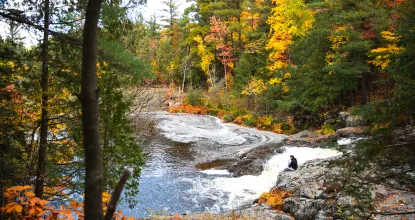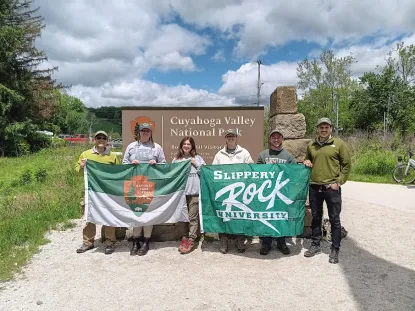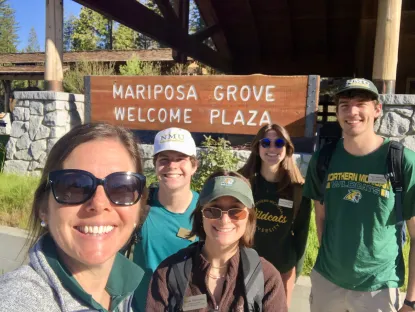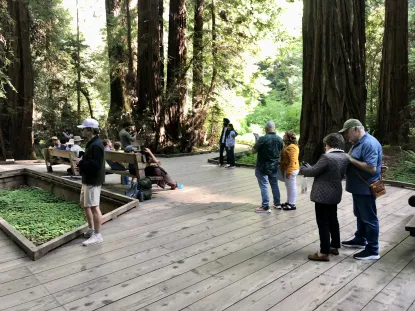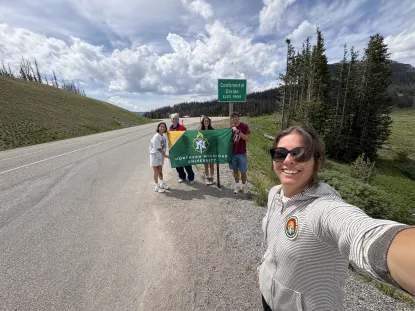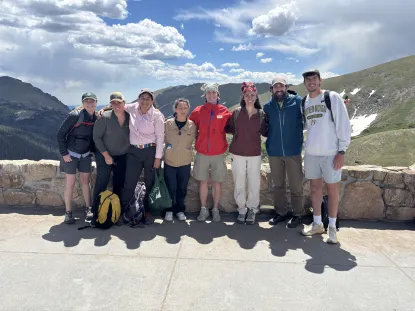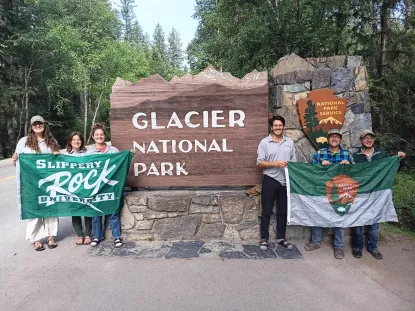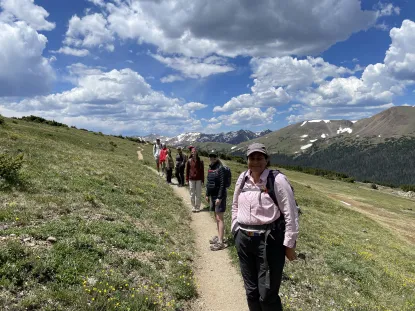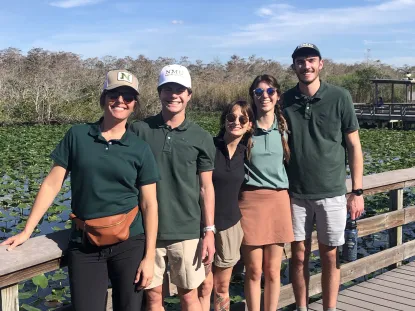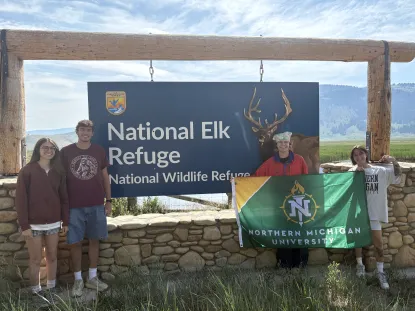Visitor Perceptions of Climate Change on Public Lands
The National Park Service (NPS) and the U.S. Fish and Wildlife Service (FWS) protect places, resources, and experiences of importance to the American public. Both bureaus administer high-quality programs of interpretation and education, foster greater site appreciation, and promote shared stewardship. But high-profile, climate-related events now regularly impact public resources, recreational access, visitor experience, and public safety. With even more significant impacts projected for the future, protecting both resources and the public will require effective dialogue about climate change with our visitors.

Research
Public communication on climate-related topics is a goal for both the NPS and the FWS. Thus, the NPS and FWS seek to better understand visitor perceptions and concerns about climate change to guide on-site communication and engagement efforts of both bureaus. A visitor survey team led by Dr. Jes Thompson (NMU) and Dr. Shawn Davis (Slippery Rock University) will gather important visitor information to help NPS and FWS managers and interpreters prepare climate change educational materials for the public at national parks and national wildlife refuges.
Dr. Thompson and Dr. Davis will hire graduate and undergraduate research assistants to survey visitors at national parks and wildlife refuges across the country. This project is a replication and extension the work that Dr. Thompson and Dr. Davis conducted in 2011 (see: Schweizer, Davis & Thompson, 2013) . The results have been used by NPS and FWS staff for more than a decade and were part of Dr. Thompson's TEDx presentation in 2017.
Meet the Northern Michigan University Team

Dr. Jessica Thompson
Co-Principal Investigator

Mackenzie Geary
Research Assistant

Sam Kearney
Research Assistant
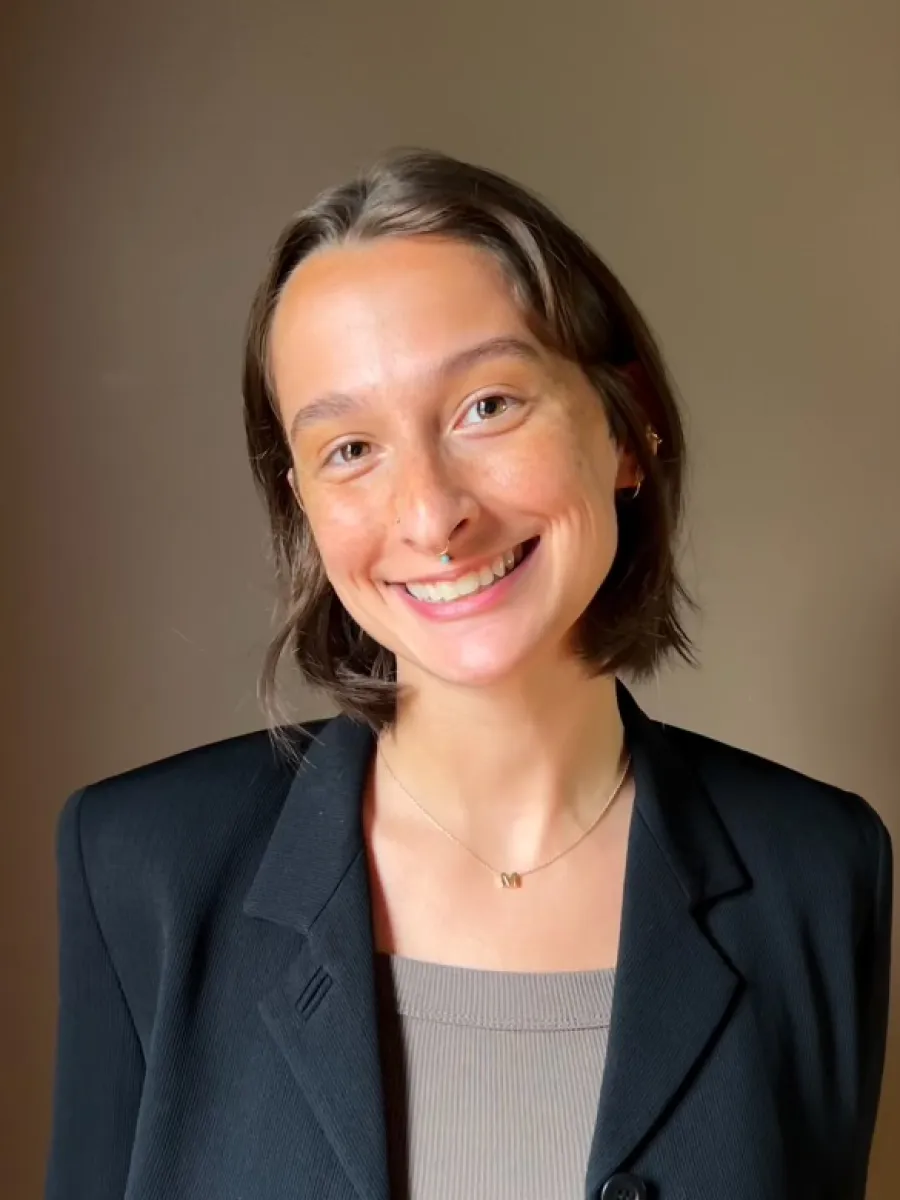
Rosie Mousseau
Graduate Research Assistant

Carson Piette
Research Assistant
Meet the Slippery Rock University Team

Dr. Shawn Davis
Co-Principal Investigator
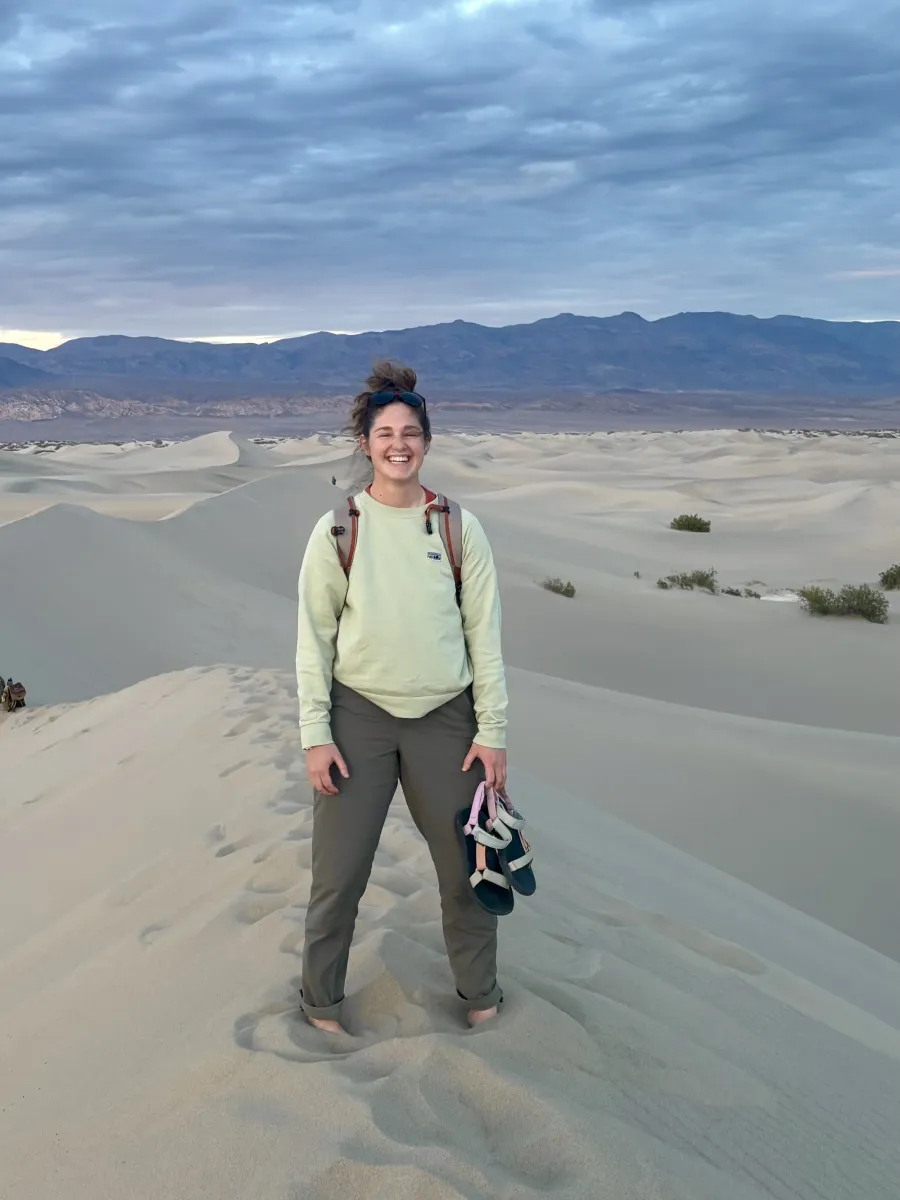
Kelly Carbone
Research Assistant
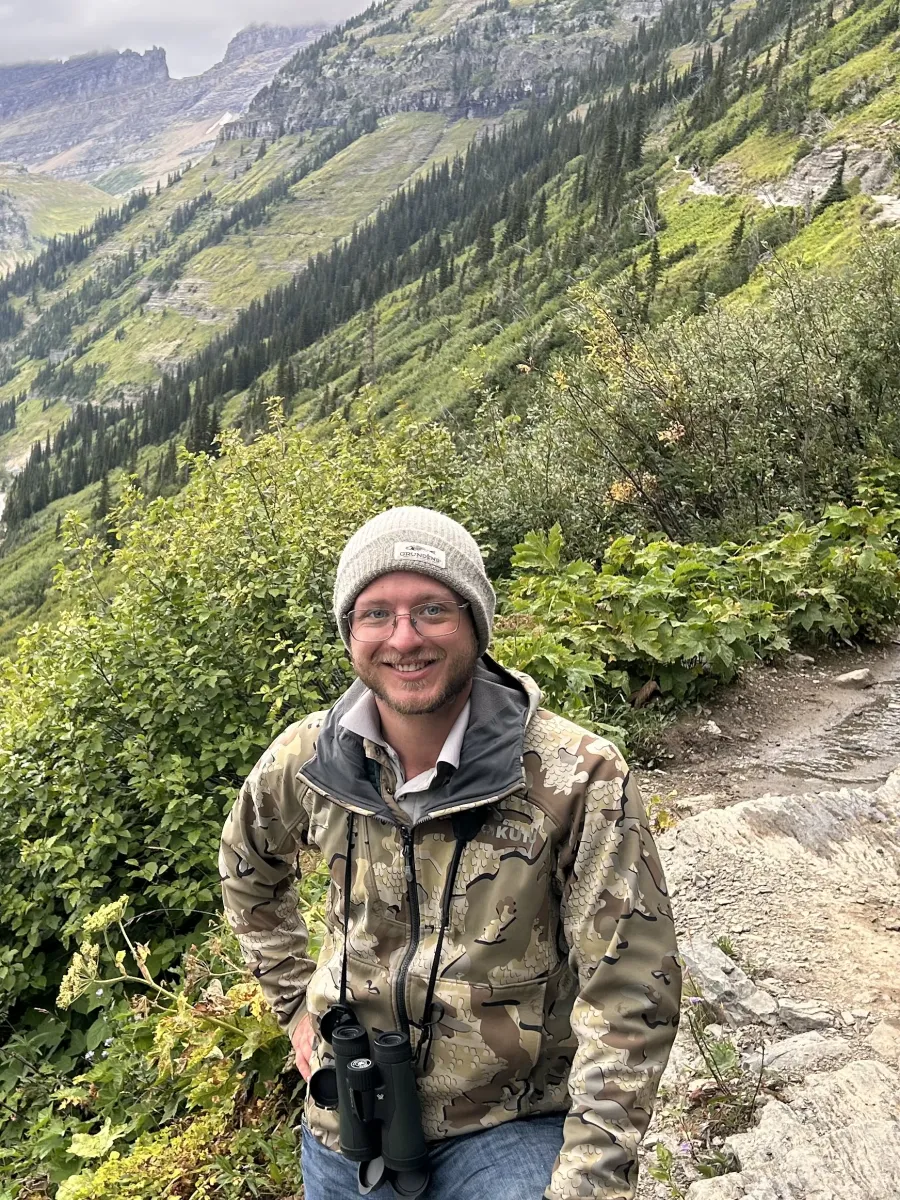
Pierce Landis
Research Assistant
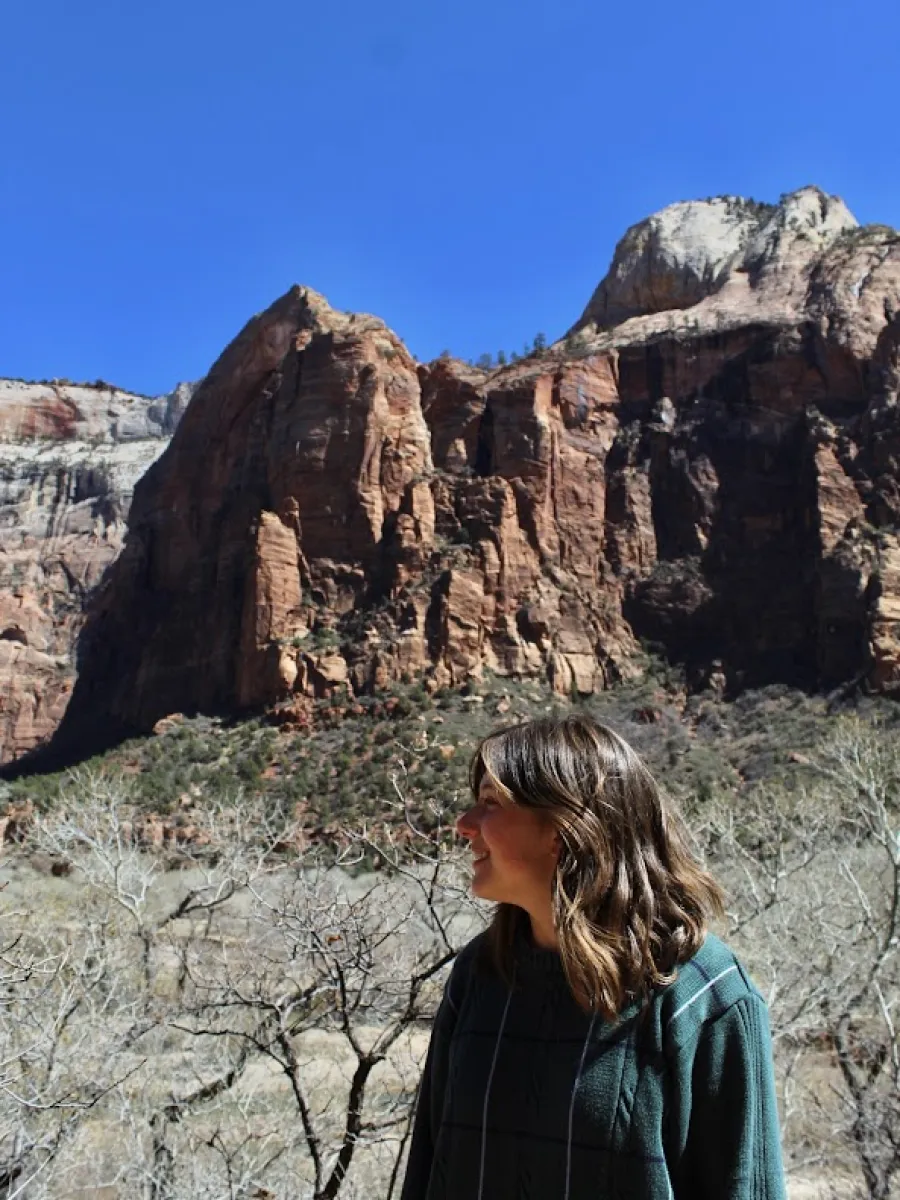
Elena Lucas
Research Assistant
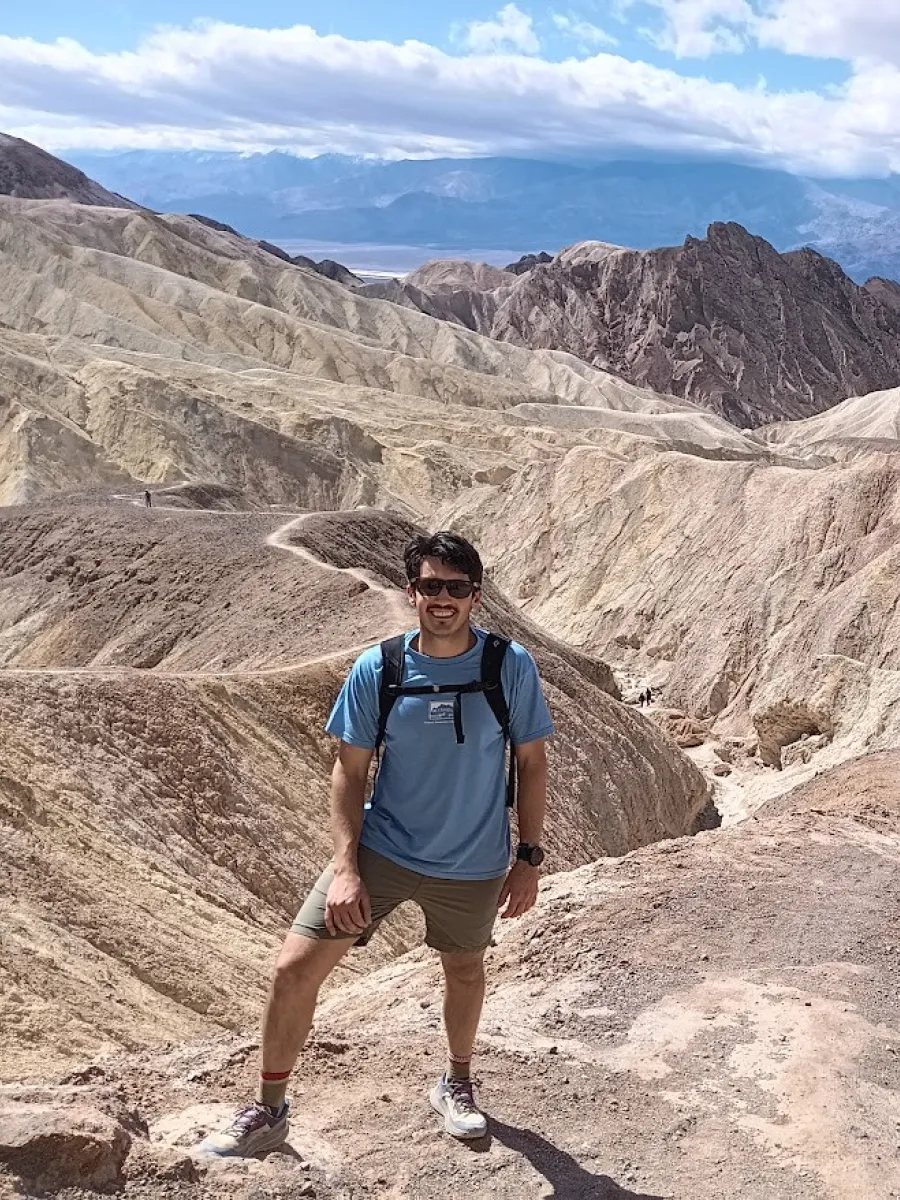
Alex Witmer
Research Assistant
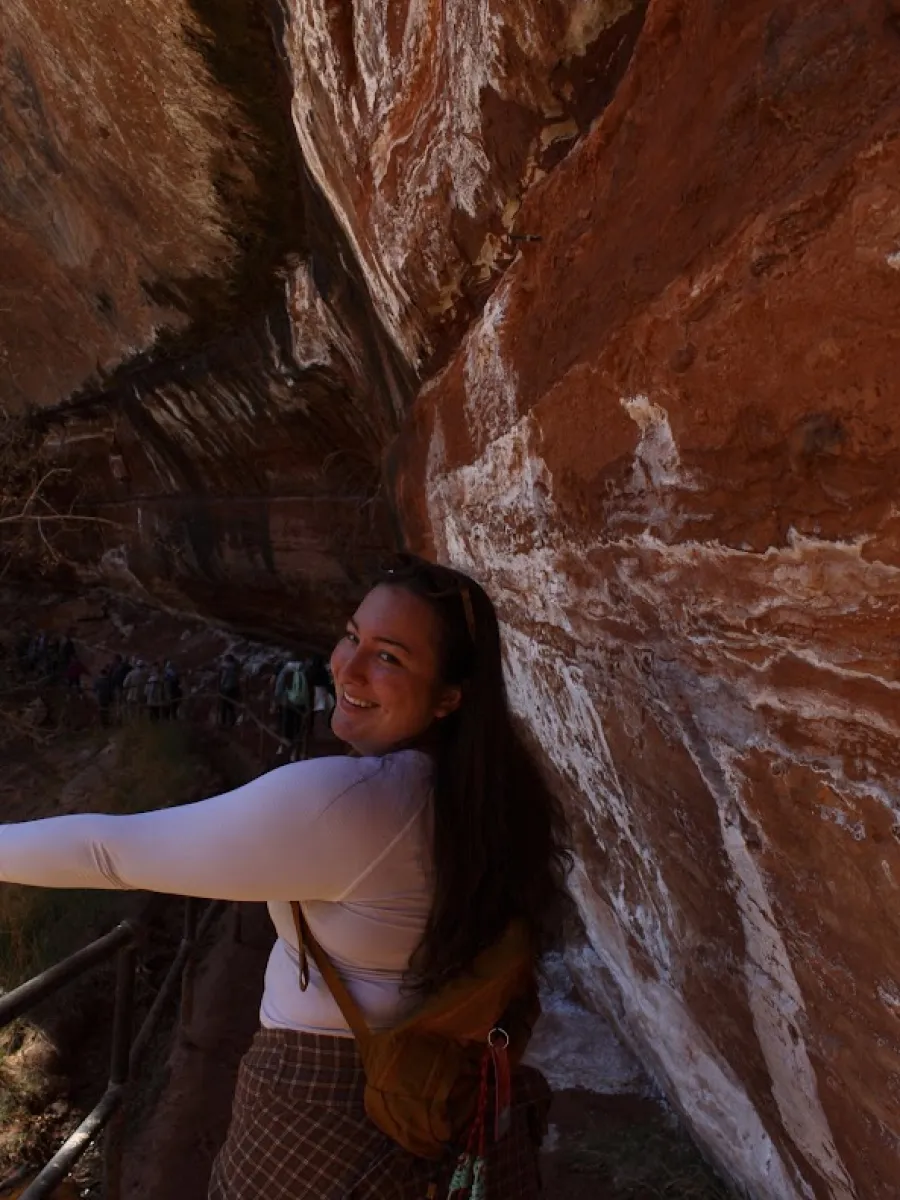
Maya Yost
Research Assistant
TEDx Presentation
The impacts of a rapidly changing climate are everywhere, yet we haven’t figured out how to talk about climate change with our friends and neighbors. Since the 1980s public conversations about climate change have been dominated by the language of science and politics. Our own fears of scientific inaccuracy and uncertainty – or political disagreement – have censored us from talking about how to live on a changing planet.
This talk presents a new frame for conversations about climate change – place – places that matter. We can change the conversation about climate change by connecting the issues to the places and people we love.
